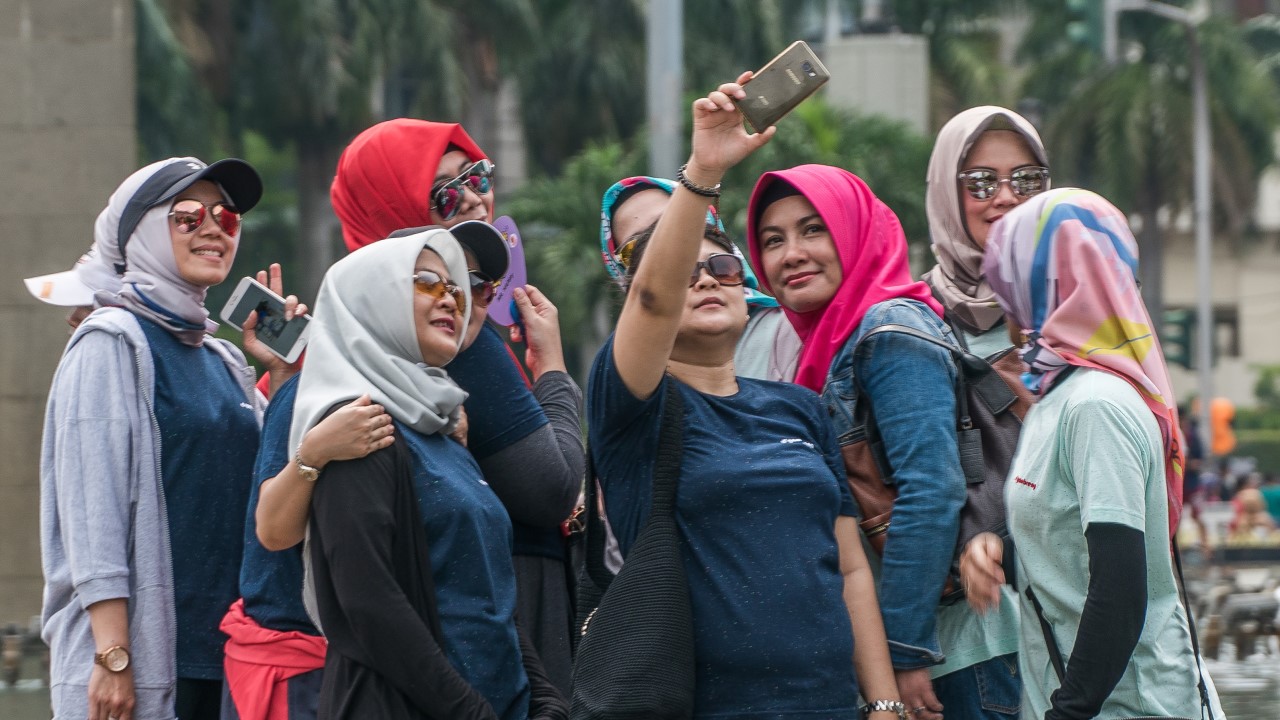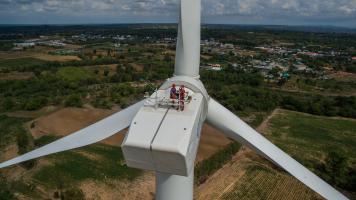How G20 Can Ensure Digital Transformation: Development for All

Lead Advisor, Southeast Asia Region, Economic Research Institute for ASEAN and East Asia (ERIA)

Indonesia is set to host the G20 Summit in Bali in November. Photo credit: ADB.
This op-ed from ERIA examines what G20 can do to advance digital transformation and digital trade.
This article is published in collaboration with the Economic Research Institute for ASEAN and East Asia.
In 2016, the top 1% of the world’s population owned half of the global wealth. But for the past 2 years, the income of 99% of the global population has worsened while the income of the top 10 richest people has doubled, of which eight out of ten are technology titans.
Digital transformation is one of the most crucial factors changing modern human life—from steam engines, electronic machinery, digital computers, and artificial intelligence (AI). Recent AI-related technologies include software as a service, robotics, the internet of things, and virtual reality.
In the last decade, the annual number of installations of industrial robots worldwide has more than doubled, with more than 400,000 in 2021. The People's Republic of China, Germany, Japan, the Republic of Korea, and the US, accounted for 76% of total industrial robot installations.
In the last 5 years, investment in AI increased by almost six-fold from $13 billion in 2015 to $68 billion in 2020. Brazil, Canada, India, and South Africa are among countries with the highest growth in AI hiring.
Digital transformation reduces the costs of sharing information leading to unprecedented changes in what and how we trade. The pandemic has even accelerated digital transformation and digital trade. The development of digital trade includes digital payments and digital services delivery.
Global retail e-commerce sales in 2020 increased by almost 30% from 2019 levels (Statista, 2021). In 2020, around 24% of firms received orders online and over 40% of firms placed orders online (UNCTAD, 2022). Digital trade reached $4.9 trillion last year, is estimated to reach $5.5 trillion this year, and more than $10 trillion by 2030.
Overall, digital transformation improves productivity and trade. Technological advances can work faster and in greater precision and accuracy, and thus reduce production and operational costs. Industrial robots and AI can also help markets to function more efficiently and will improve human welfare overall.
Digital transformation and inequality
While digital transformation improves productivity and trade, it also raises inequality in at least two ways.
First, displacement effects: capital and technology take over tasks previously performed by labor and automation reduces the share of labor in value added. This displacement will impact both employment and wages, particularly for less-skilled workers who can be replaced by robots and AI.
Second, premature deindustrialization effects: digital transformation may also impact developing countries, including potential premature deindustrialization and disappearance of manual and routine jobs.
On top of inequality issues, we face key challenges in digital transformation including digital trade. First, privacy: private individual information and data are exposed to services providers, including pervasive exchange of data that has fueled concerns about the use and misuse of data.
Second, cyber security: the expansion of rapid digitalization and the use of data by businesses and consumers for communication, digital trade, and as a source of access to information and innovation, comes along with increased threats: threats against data, against systems, and against people.
Third, competition: technological advancement enables firms to produce and operate in massive economies of scales, leading to market concentration. Market concentration reduces competition and can create barriers to micro, small, and medium-sized enterprises and start-ups resulting in an uneven playing field, with big tech players using integration as their strategy to dominate markets and capture more revenues at the cost of consumers.
Last, digital divide: digitalized systems and digitally deliverable goods and services still account for lower shares in the least developed countries than in other parts of the world. Only 2% of the population in low-income countries conducted digital trade. Countries, firms, and individuals are varying greatly in their digital trade readiness depending on education, skills, and infrastructure.
Implementing G20 commitments
Considering the advantages and challenges of digital transformation and digital trade, what can G20 do?
First, it is important for G20 to implement the commitments made in digital transformation and digital trade, including among others the Industrial Revolution Action Plan, Roadmap for Digitalization, and recently the Adoption of AI. What we need now is to operationalize and implement these frameworks and commitments.
Second, improve the quality of key digital enablers, including data security and data governance, law and regulations, digital infrastructure, and skills. This requires G20 commitments to ensure digital inclusiveness for all.
Third, promote efforts to improve individual preparedness as digital transformation at the end is about people. G20 should promote efforts to improve preparedness for digital and AI technologies to reduce digital divides within and between countries. This calls for better G20 cooperation in providing incentives for "good technology" adoption for developing countries.
Last, improve the quality of privacy law and competition/antitrust law, and it is crucial to ensure its implementation of them worldwide.
It is a must for G20 to ensure "digital transformation: development for all."
This article was first published by The Jakarta Post and The Manila Times.

Lili Yan Ing
Lead Advisor, Southeast Asia Region, Economic Research Institute for ASEAN and East Asia (ERIA)Lili Yan Ing also serves as Secretary General of the International Economic Association (IEA). She was appointed as lead advisor to the Minister of Trade of Indonesia from 2017 to 2019 and senior advisor on trade and investment at the President’s Office of the Republic of Indonesia from 2015 to 2016. She represented Indonesia at the G20 Trade Ministers Meeting in 2018 and at the WTO Trade Ministers Meeting at the sidelines of the OECD Council Meeting in 2018 and 2019.

ERIA (Economic Research Institute for ASEAN and East Asia)
ERIA is an international organization that was established in 2008 by an agreement of the leaders of 16 East Asia Summit (EAS) member countries. Its main role is to conduct research and policy analyses to facilitate ASEAN Economic Community (AEC) building and to support wider regional community building.


